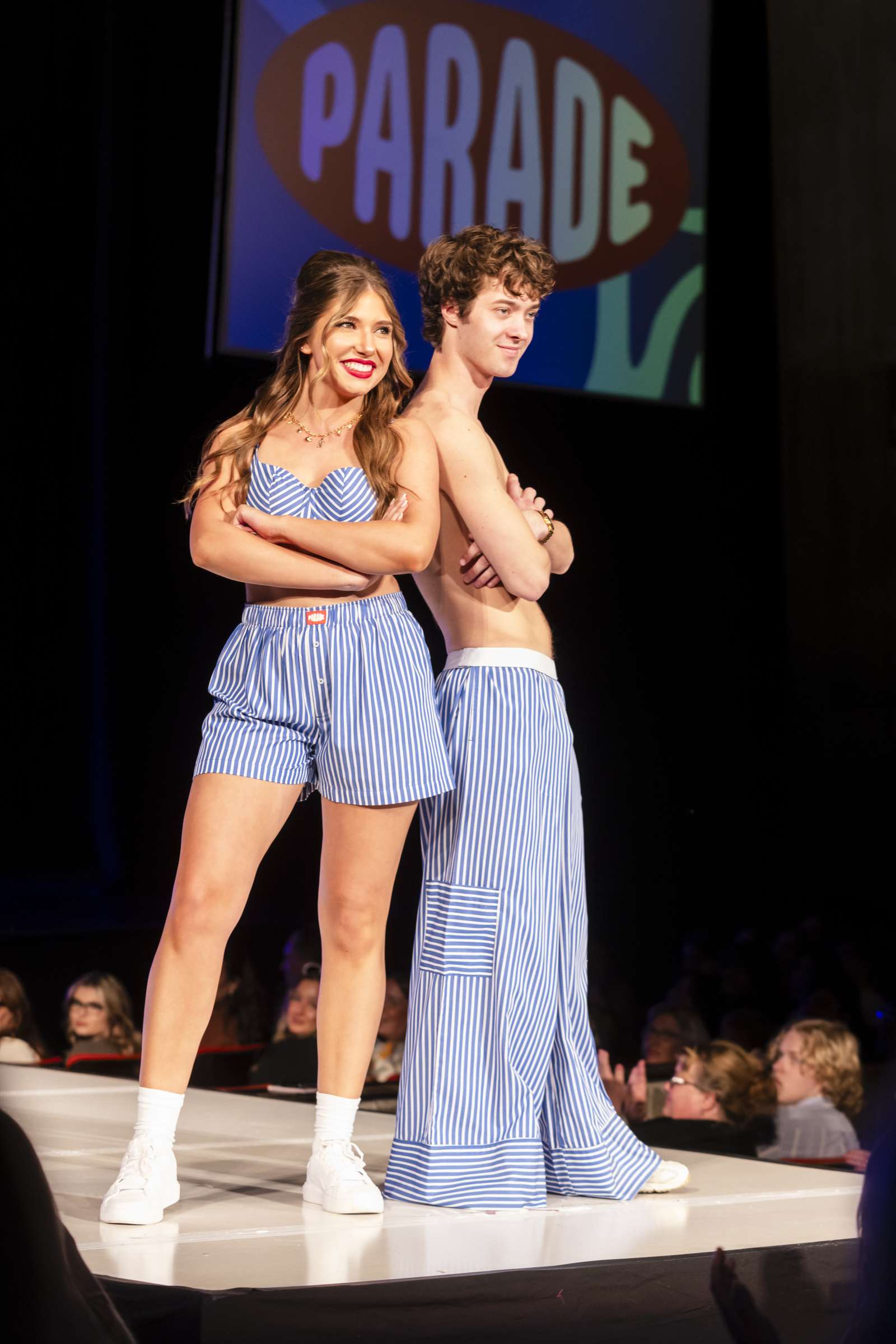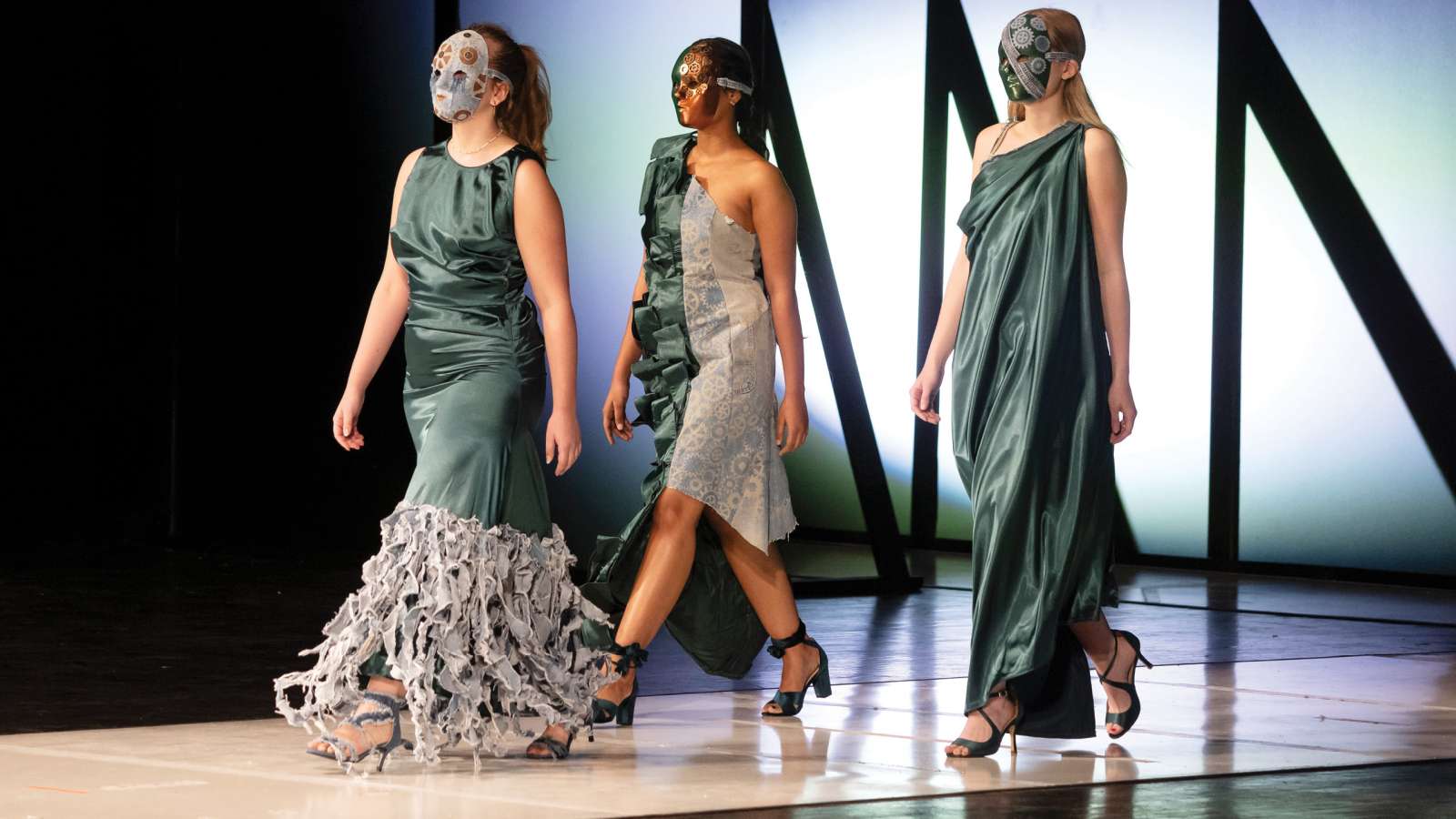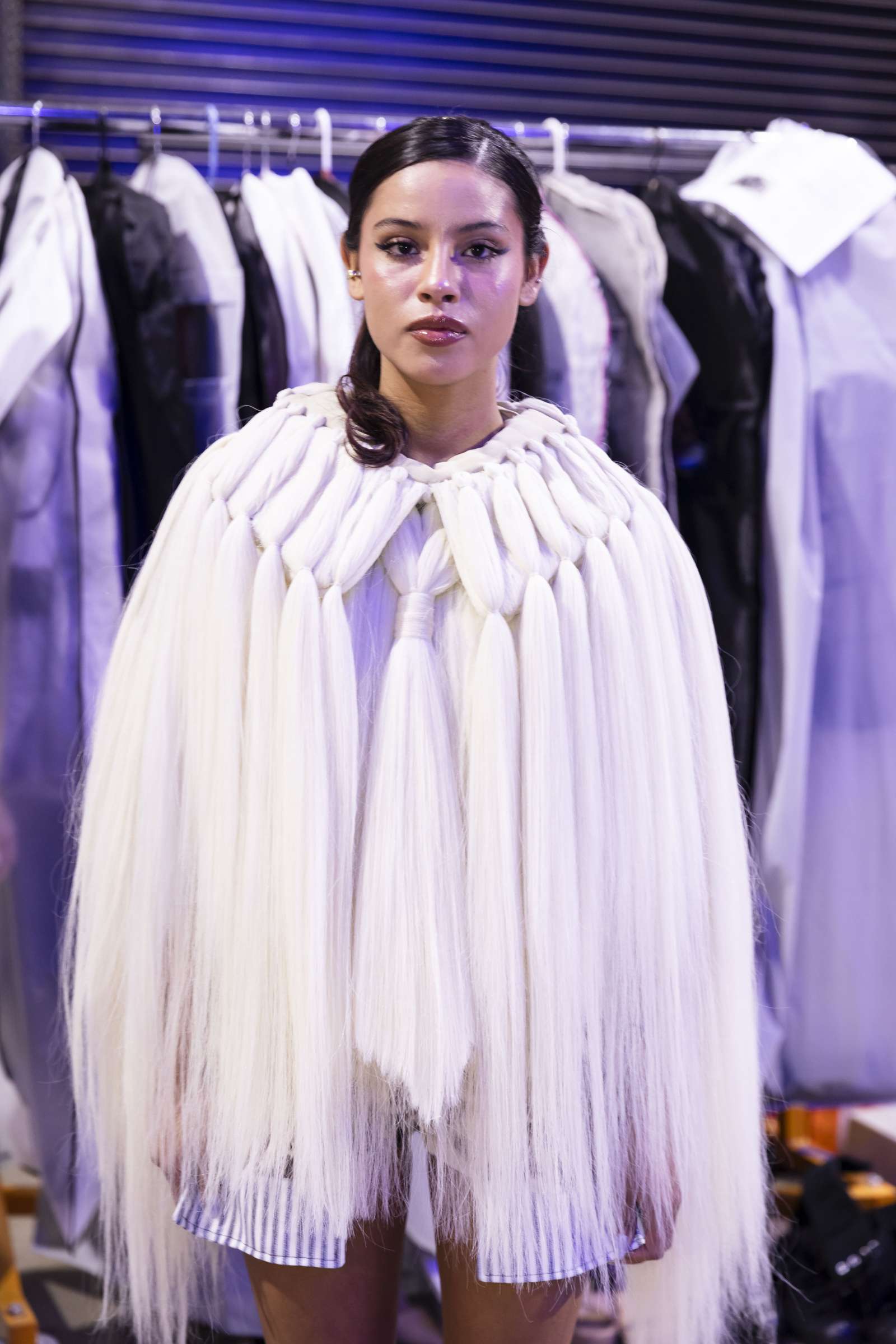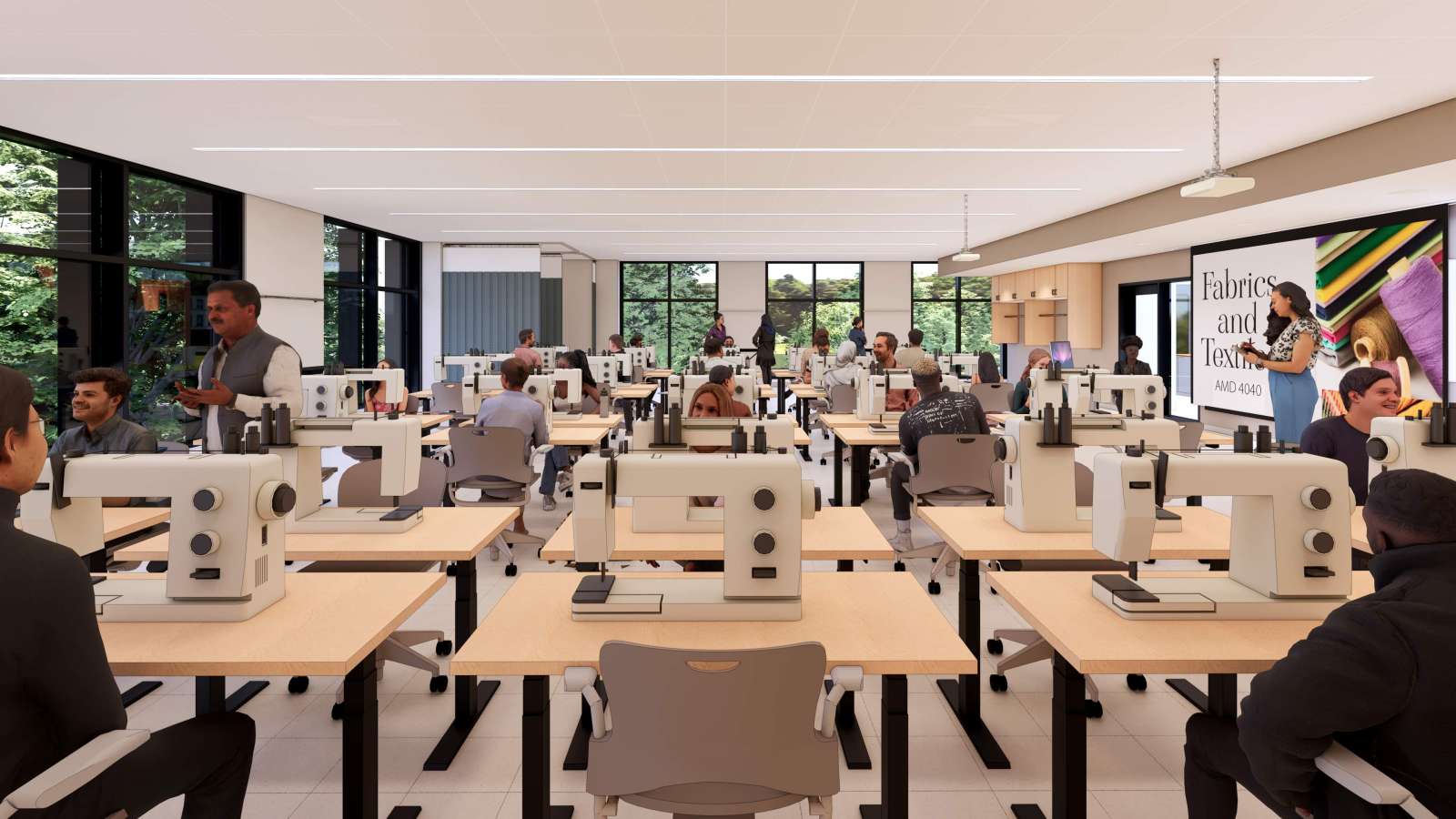The Fashion Show, or “TFS,” begins long before the stage lights illuminate the first models on the runway. Before the thrum of electronica reverberates through the sold-out Stephens Auditorium crowd. Before the backstage hubbub of hair, makeup, and final fittings. Before accomplished guest judges fly in to score student designs. Before, even, the first stitch on any garment is sewn.
Nearly a year before its big night, TFS planning gets underway as aspiring student leaders interview for top production roles. Once chosen, four producers cast a collective vision. They coordinate across 15 committees and with more than 200 of their peers to stage a two-hour creative spectacle.
“It’s an exclamation mark experience,” says teaching professor Sarah Bennett-George (’06, ’11), who has served as TFS faculty advisor for 13 of its 43-years. “[The students involved] get to put together everything they’ve learned and, after all the late nights and sweat and tears, give people a glimpse of what they love and have worked hard at.”
Whether directing, designing, marketing, or modeling, contributing to such a large-scale undertaking is much more than a moment for students to strut their stuff. Months of preparation include ambitious outreach and philanthropic initiatives alongside innovative designs. Now among the nation’s largest student-produced annual fashion shows, TFS develops the next generation of leaders who will reinvent the multibillion-dollar textile and clothing industry. Enthusiastic engagement from prospective students and alumni perpetuates the show’s success.
Instilling fashion aspirations

For this year’s co-producers, landing a leadership role with TFS fulfills a long-held goal. After missing out on opportunities to get involved during his freshman year, Owen Abrahamsen (’25) secured a front-row seat to the show. He remembers sitting in awe of the experience.
“Seeing how the producers carried themselves on stage, I knew this was something I wanted,” says the creative and technical design major from Brownsville, Vermont.
A visual merchandising internship and a summer job at a Coach store in upstate New York gave him experience and connections to industry leaders. His senior year, Abrahamsen rose to the role of co-outreach producer and contributed two runway collections. He also introduced his team to the show’s guest designer, Parade, a size-inclusive and sustainable intimates brand. He befriended Raquelle Puglisi, now Parade’s senior brand marketing manager, during his summer job at Coach.
“It was important to find a guest company that aligned with how we wanted the fashion show to feel, look, and be perceived,” Abrahamsen says. “Parade promotes both cultural inclusivity and body positivity.”
For many involved in TFS, their interest in the event starts pre-enrollment. Prospective students can attend “Behind the Scenes Day,” which gives them a first-hand look at all four degree focus areas: creative and technical design, merchandising and retail analytics, product development for apparel and soft goods, and fashion communications. The Fashion Show dress rehearsal caps off a day of campus tours, workshops, and panels. The experience inspired co-outreach producer Becca Parker (’25) to commit to Iowa State.
“I was choosing between 10 different colleges at that point,” says the recent alum from Libertyville, Illinois. “I decided to go on the (then virtual) ‘Behind the Scenes Day’ event and that’s how I heard about the show. I got involved in three different TFS committees over my time, and now we’re here.”
In her role as co-outreach producer, Parker helped spearhead this year’s record-breaking $44,422 FundISU campaign. Crowdfunding underwrites production expenses for future shows and contributes to several scholarships awarded to TFS participants.


